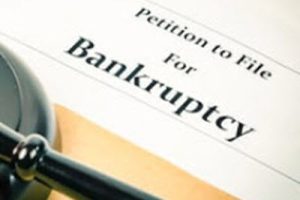Can I Still Buy A House With Bankruptcies?

Credit score is usually the most important factor in a home mortgage application. Filing bankruptcy lowers your score, but for most people, the effect is negligible. That’s because, mostly due to multiple late payments and charge-offs, most people who file bankruptcy already have poor credit scores. Additionally, most creditors dislike people who bury their heads in the sand and hope the problem goes away. If you file bankruptcy, at least you did something.
A Chicago bankruptcy lawyer does much more than complete forms. An attorney unlocks advanced bankruptcy features that maximize your fresh start. Additionally, a lawyer advocates for you in the likely event the trustee or a creditor becomes hostile. Perhaps most importantly, a Chicago bankruptcy lawyer helps you rebuild your credit score, so you can continue making major purchases.
Mortgage Waiting Period
No state or federal laws impose a mandatory mortgage waiting period in this area. Banks and other lenders set their own rules. Typically, the mortgage waiting period is about five years after a Chapter 13 and around eight years following a Chapter 7.
Why the difference between the two? Chapter 13 is a repayment plan bankruptcy. These filers get up to five years to catch up on delinquent secured debts, like a past-due auto loan. Chapter 7 is a fresh start program. It immediately discharges most unsecured debts.
As mentioned, each creditor sets its own rules in this area. That applies not only to the length, but also to the effect. For example, Bank A might require former Chapter 13 debtors to wait six years. But this waiting period is usually more of a guideline. Many lenders are willing to bend their own rules, especially if it means they can charge a higher interest rate for a high-risk loan.
A Chicago bankruptcy lawyer is not a mortgage broker. But an attorney does know which lenders work with damaged credit individuals and which ones don’t. So, your lawyer can point you in the right direction.
Frequently, the waiting period ends, or a lender will extend credit, before the court supervision period expires. Bankruptcy debtors must jump through some additional hoops in this area. The judge usually requires additional proof of income and other financial documents in these situations.
Rebuilding Your Credit Score
Filing bankruptcy gives people control over their own finances. This control continues after the judge closes the case.
Responsible credit use is a very good way to rebuild a post-bankruptcy credit score. Find a secured credit card with a low maximum balance, use the card every month, and pay most of the balance every month. An attorney can give you some card options. Paying most of the balance, instead of the entire balance, lets the bank charge a little interest and earn a little money. As a result, the bank gives a more favorable report to the credit bureau.
Proactive rebuilding speeds up the process, but it’s not absolutely necessary. Simply paying bills on time raises your credit score every month. The effect simply isn’t as dramatic.
By the time the bankruptcy filing officially falls off your credit score, which is usually between seven and ten years away, many former debtors don’t remember that they filed in the first place.
Reach Out to Compassionate Cook County Lawyers
No matter what kind of financial problem you are having, bankruptcy could be a way out. For a free consultation with an experienced bankruptcy attorney in Chicago, contact the Bentz Holguin Law Firm, LLC. Convenient payment plans are available.


